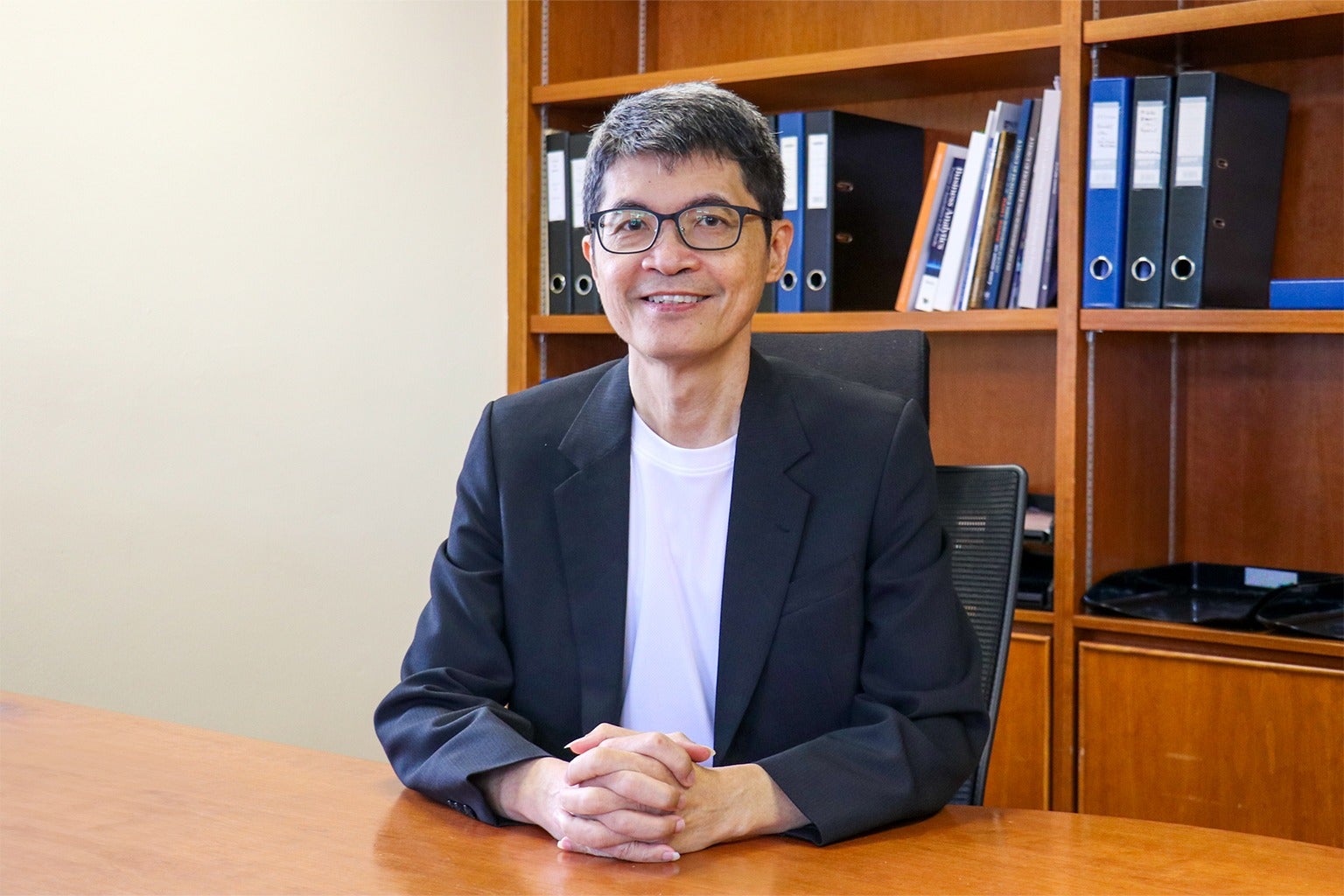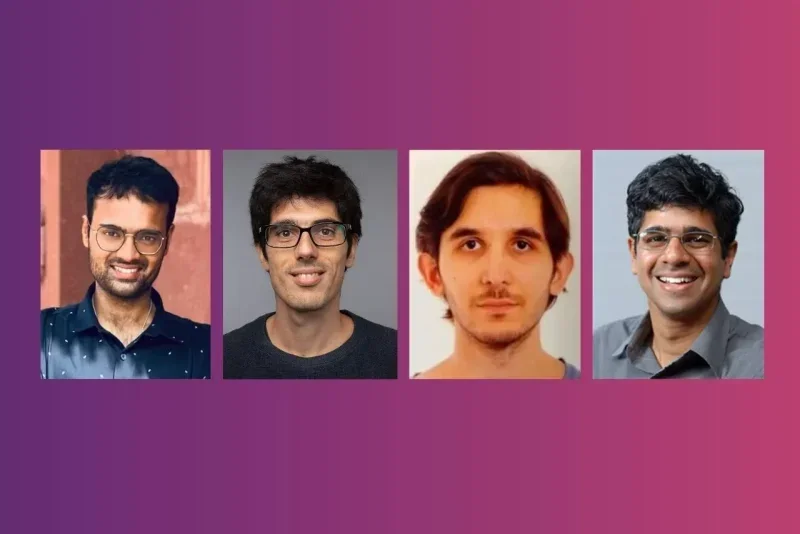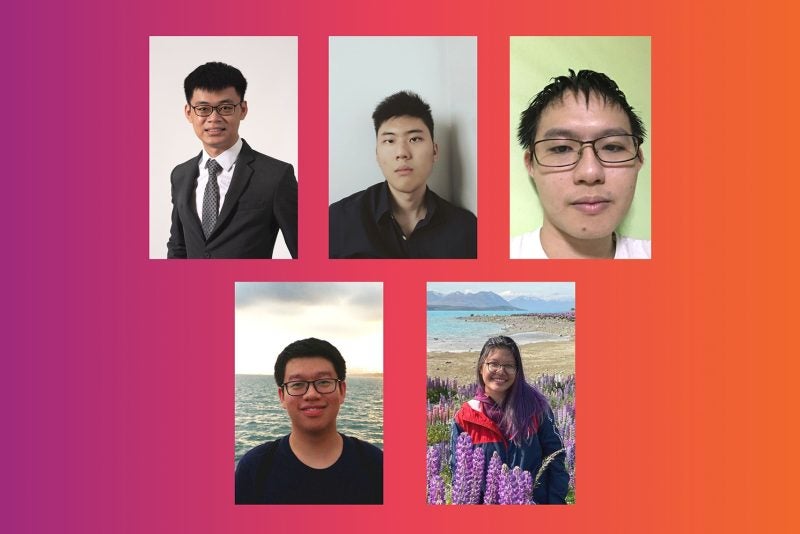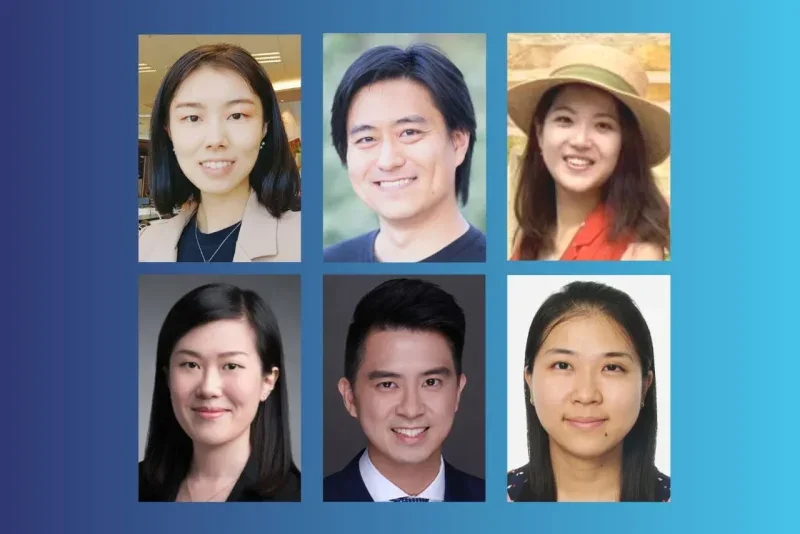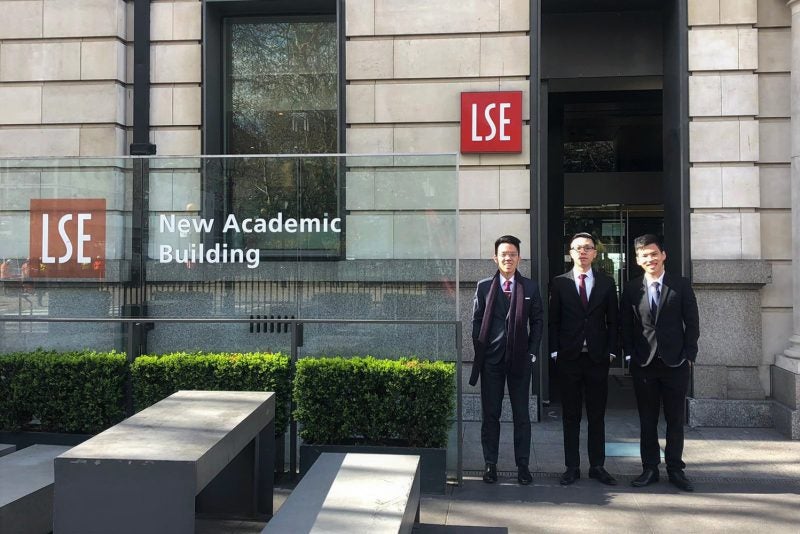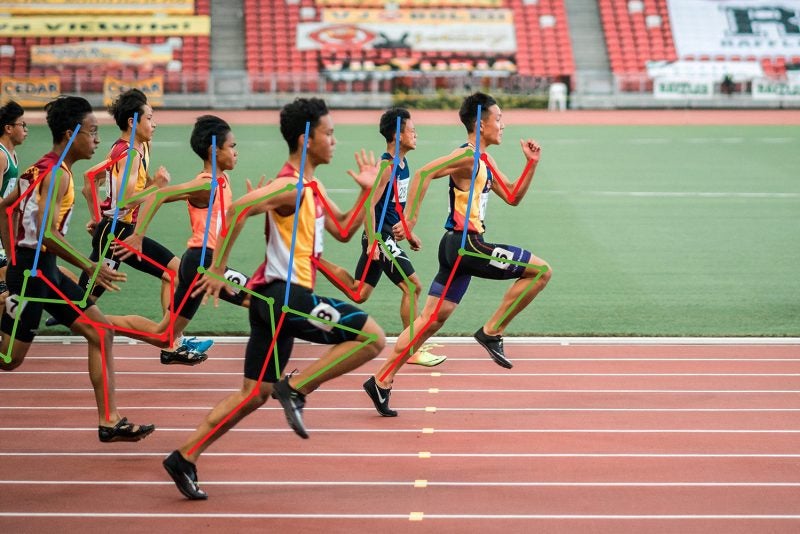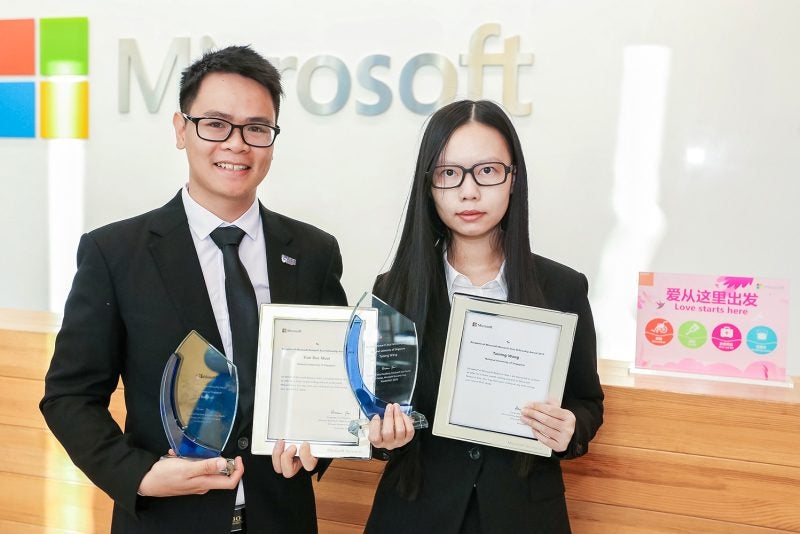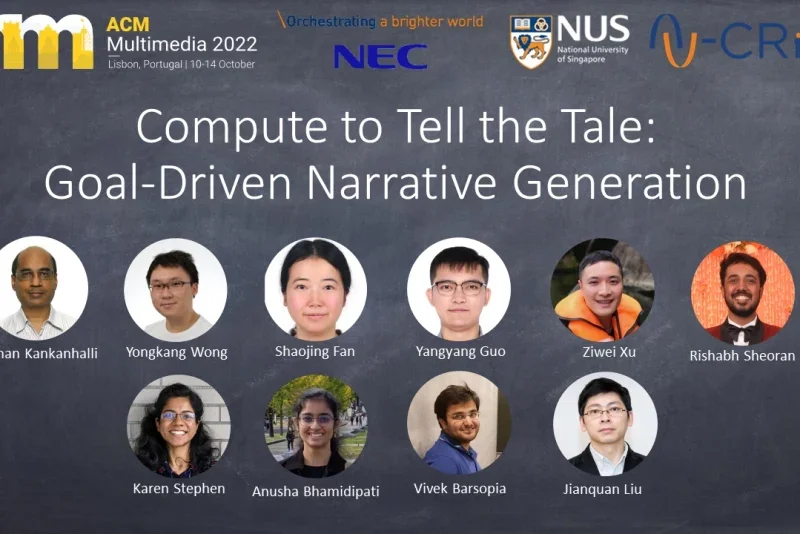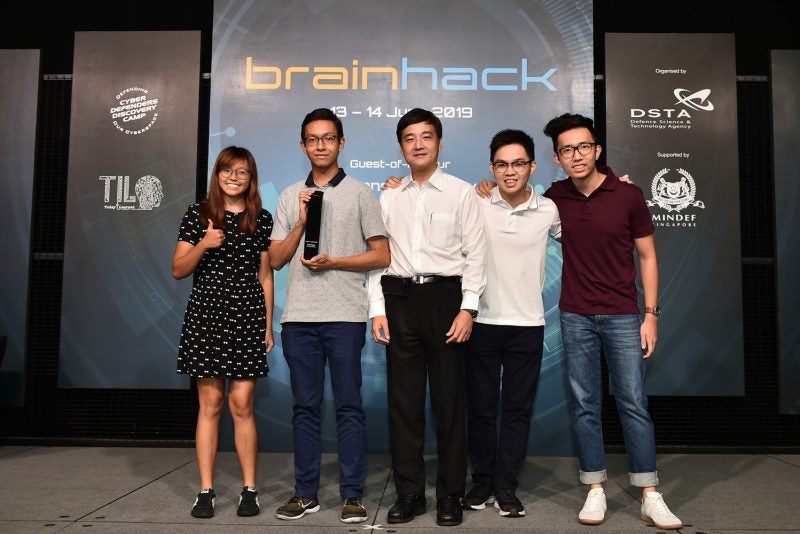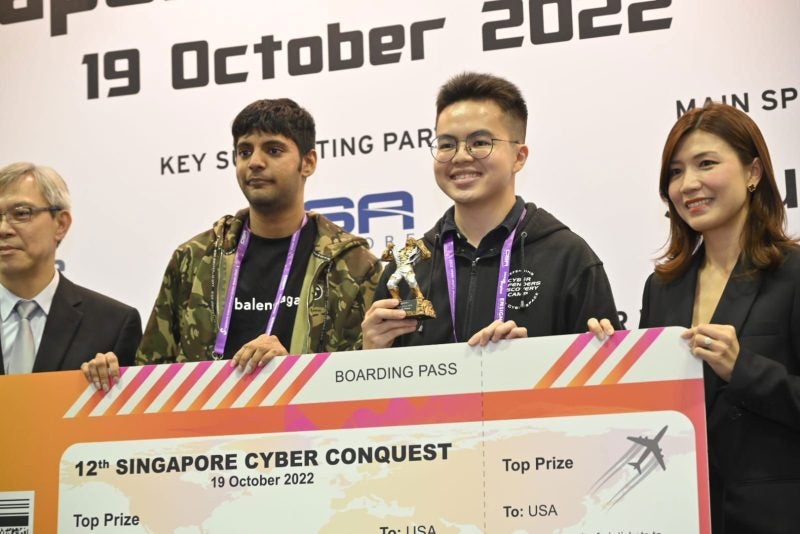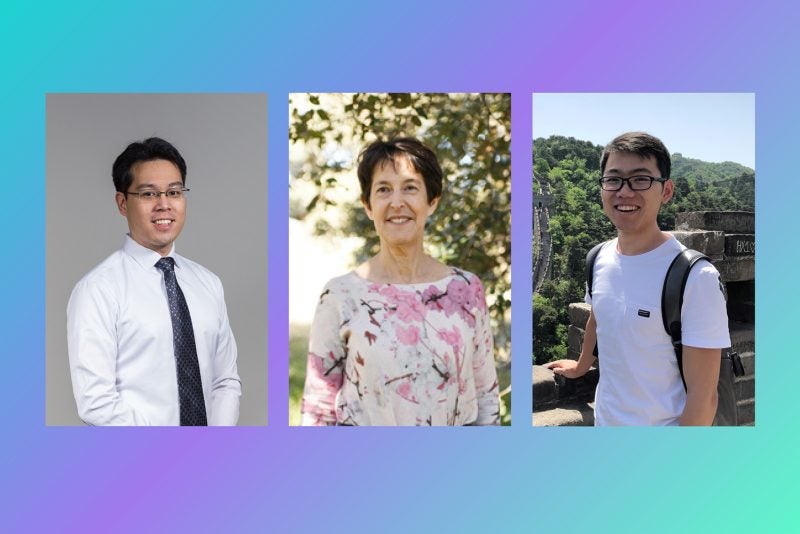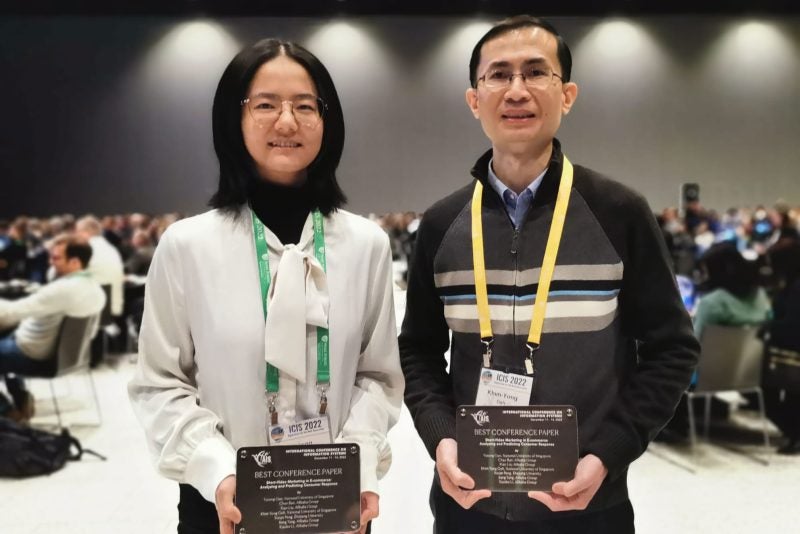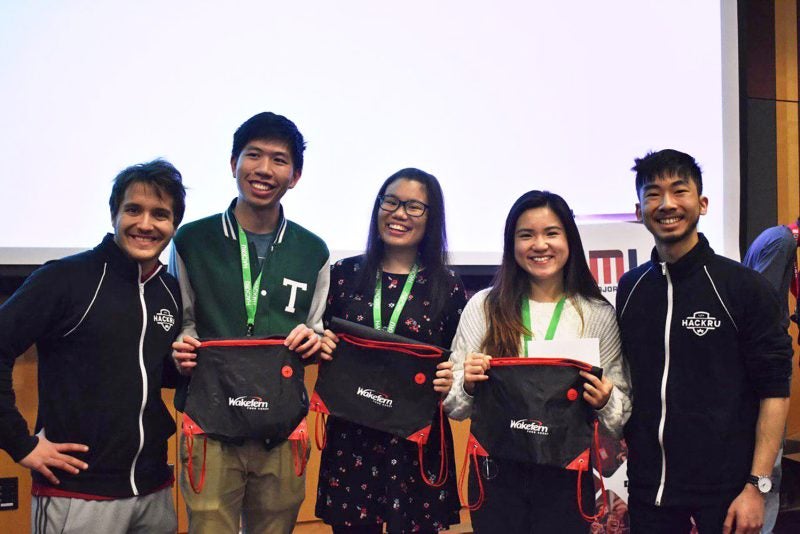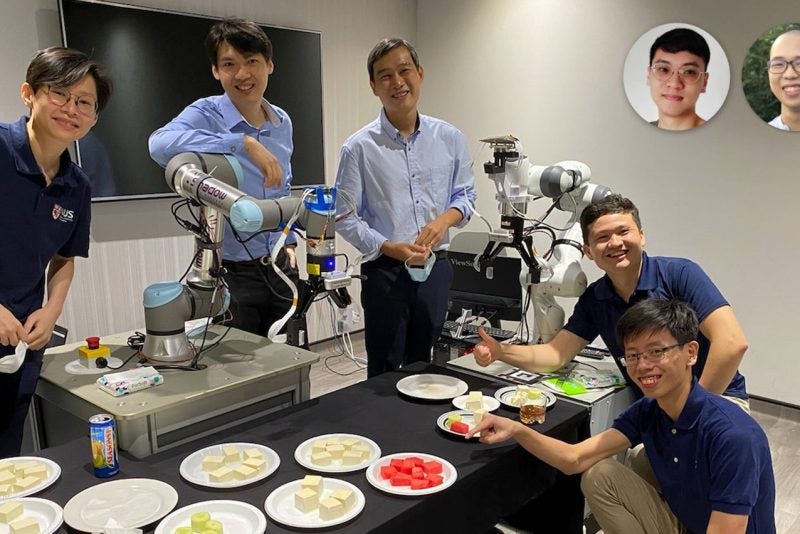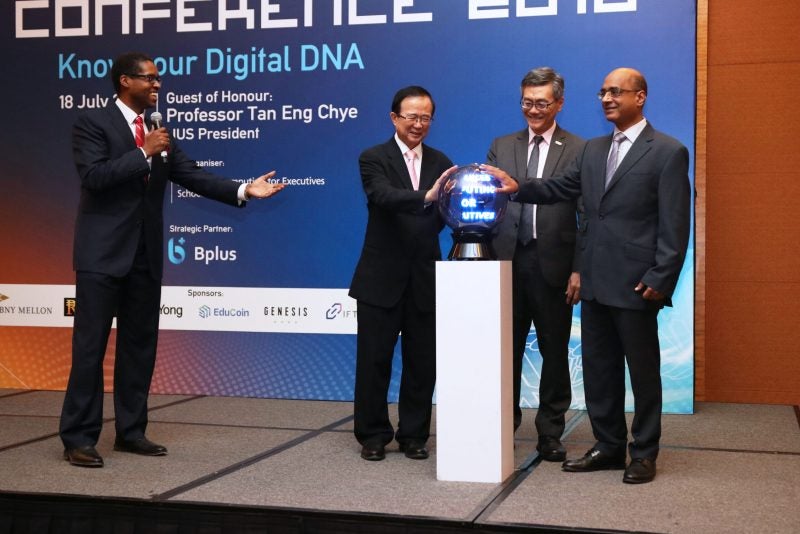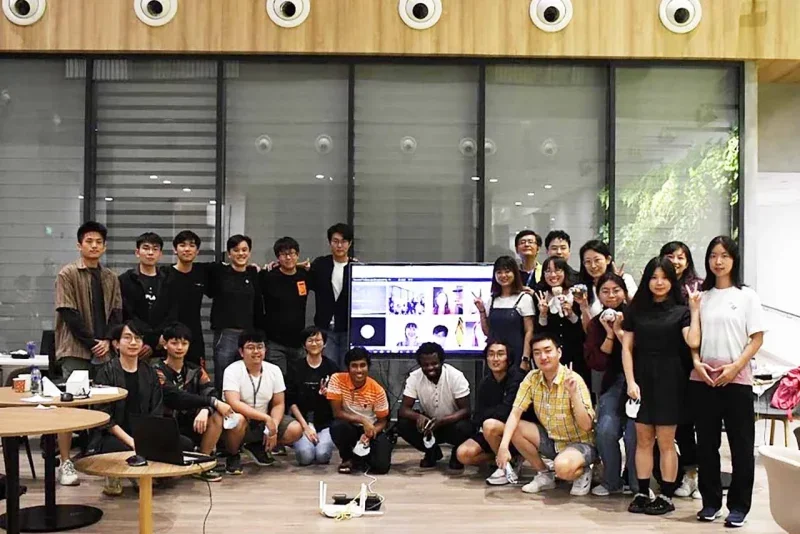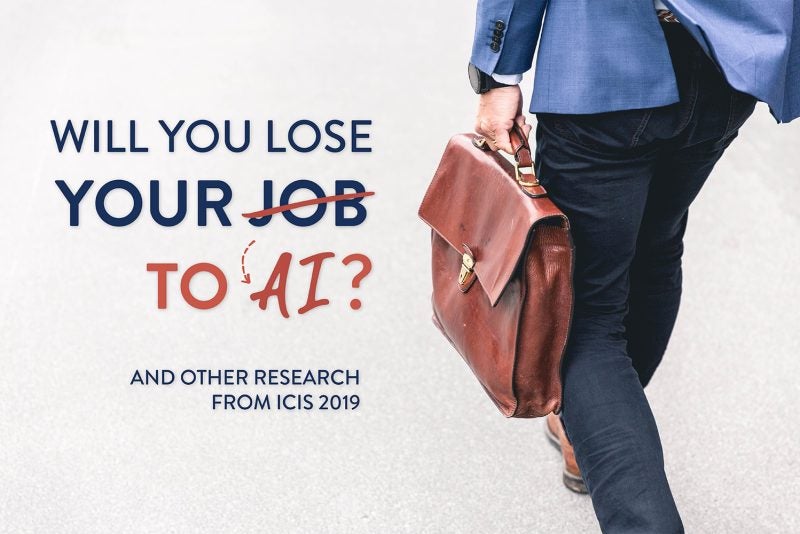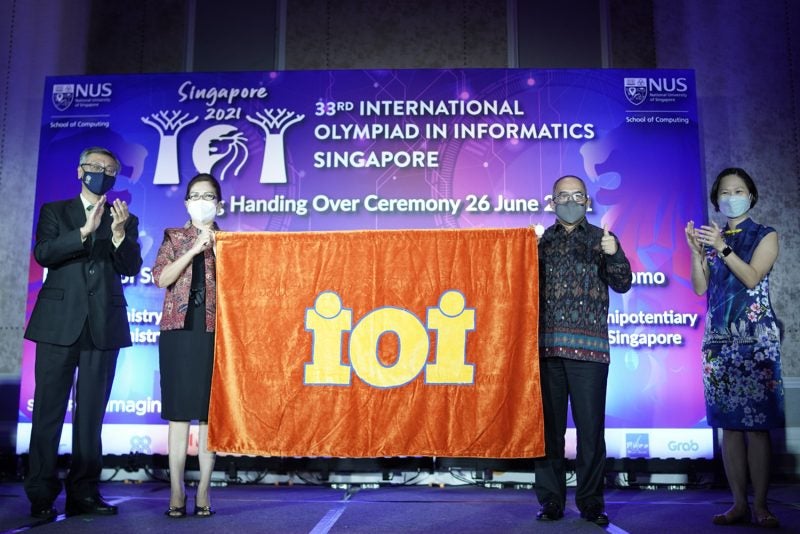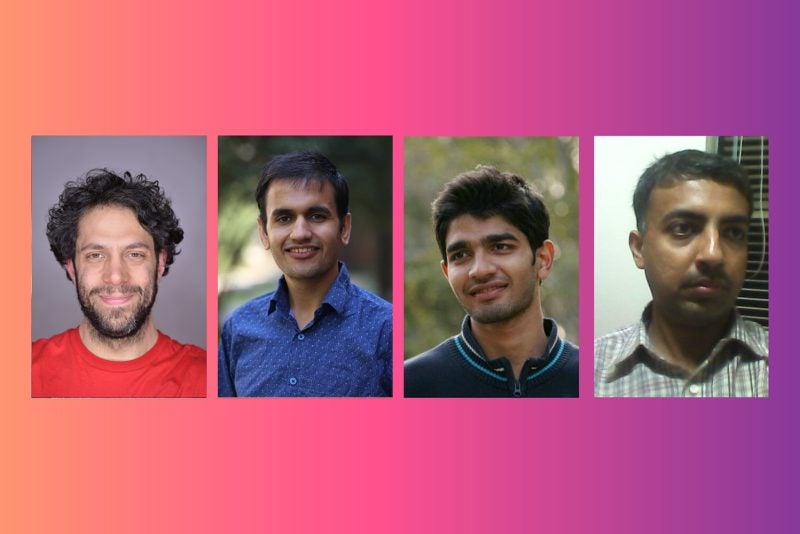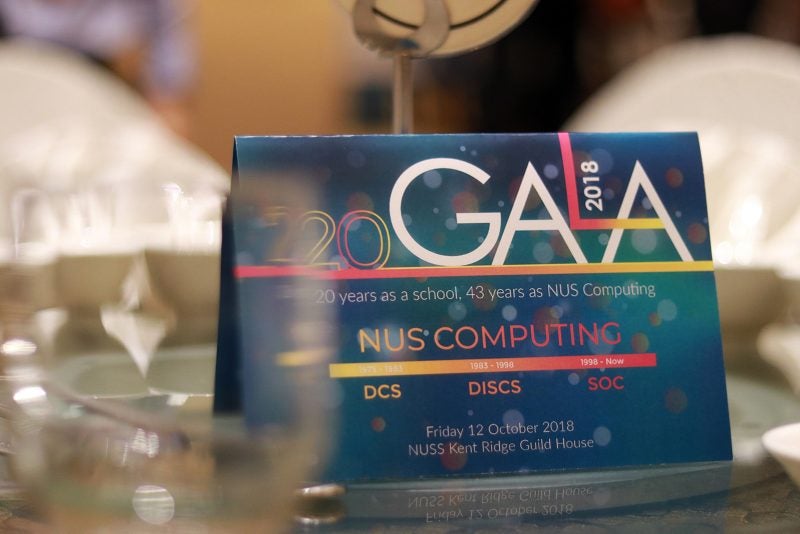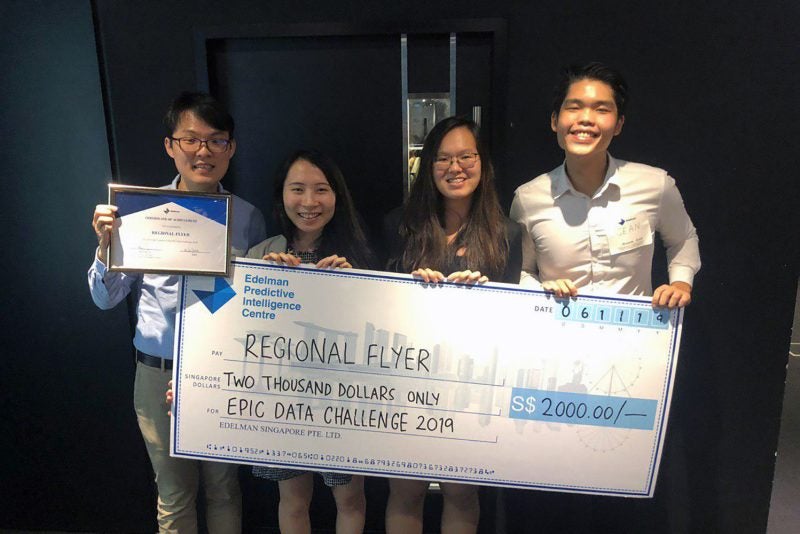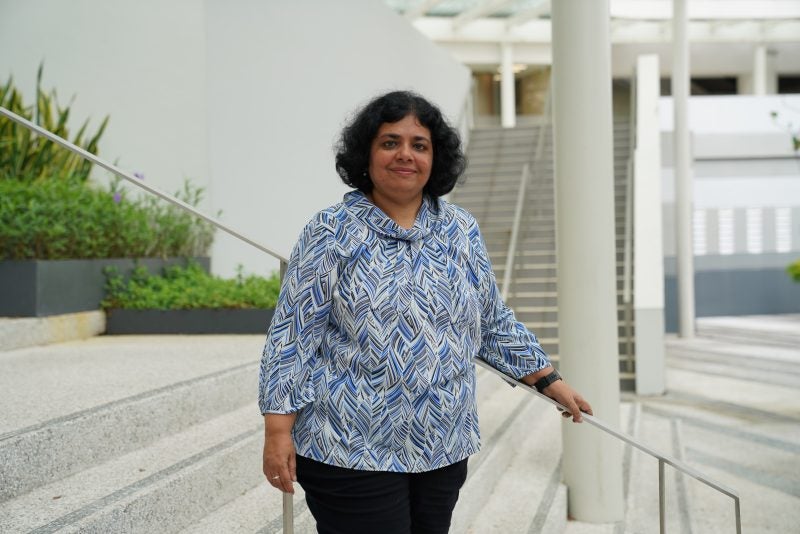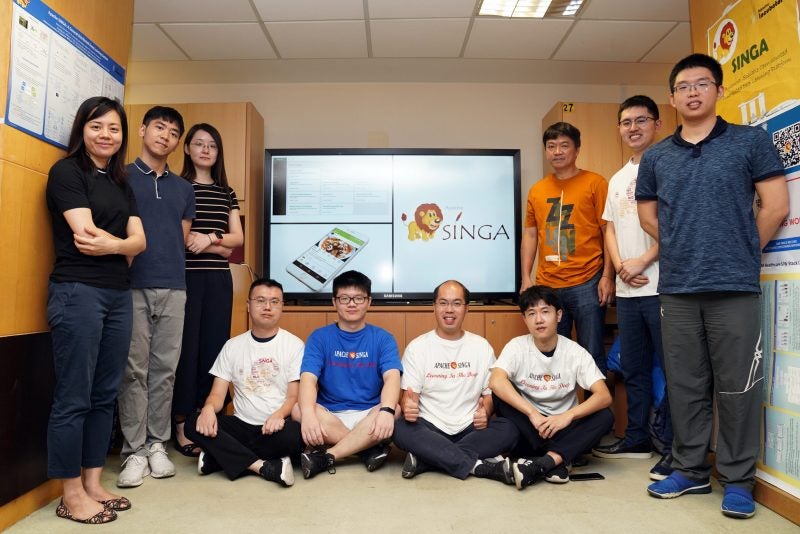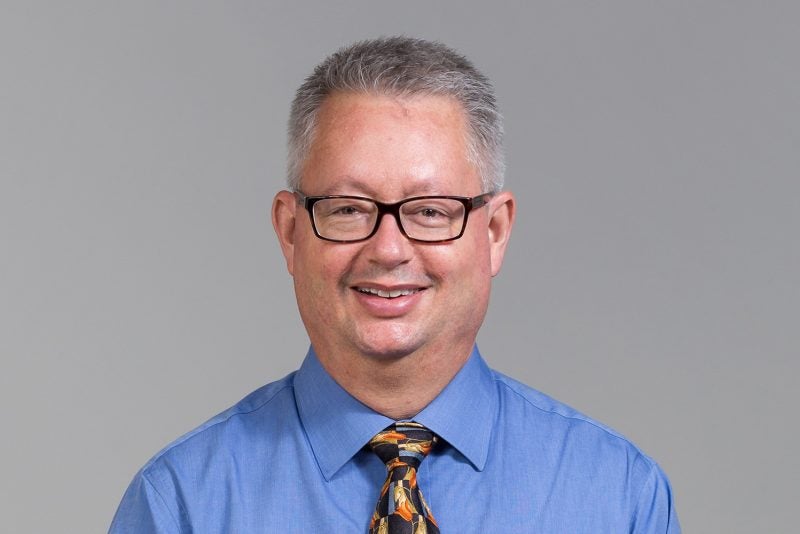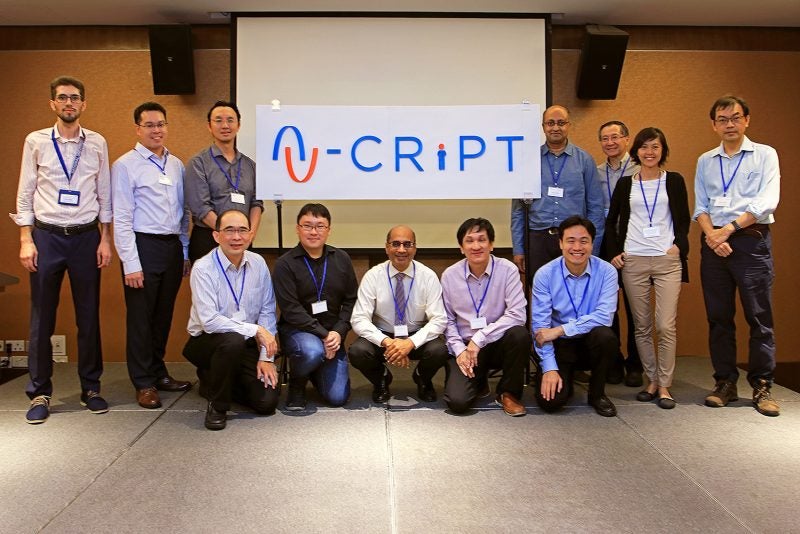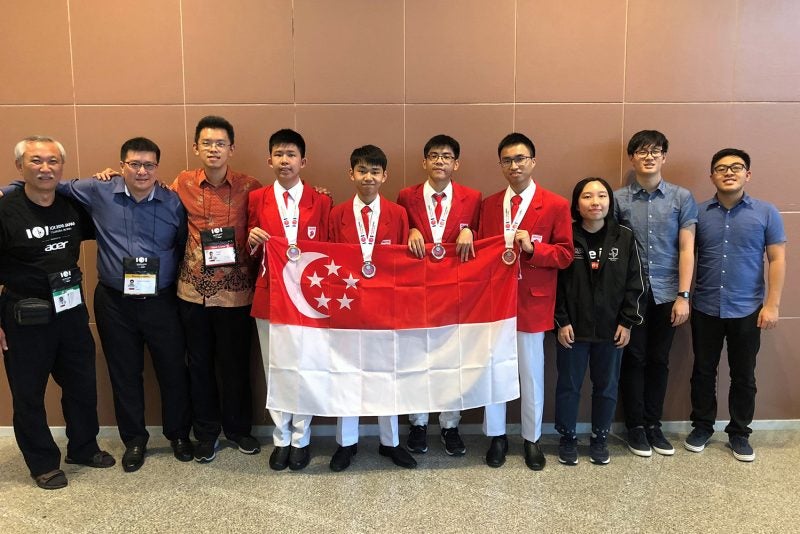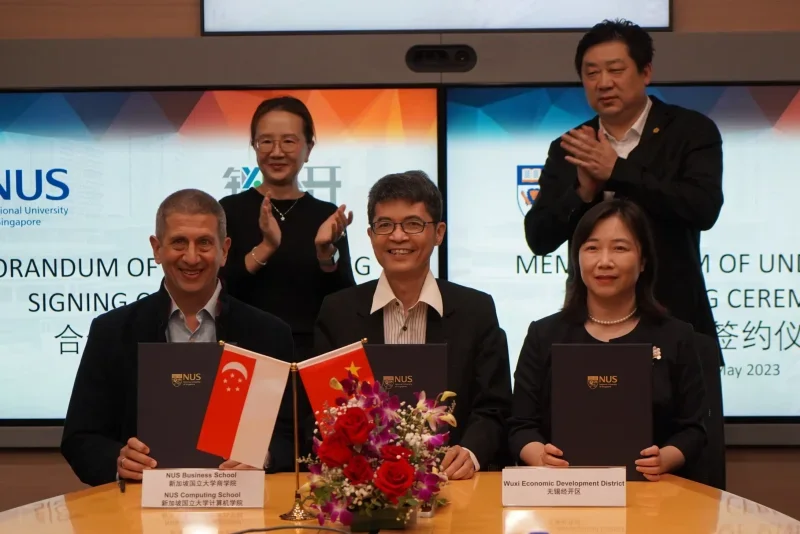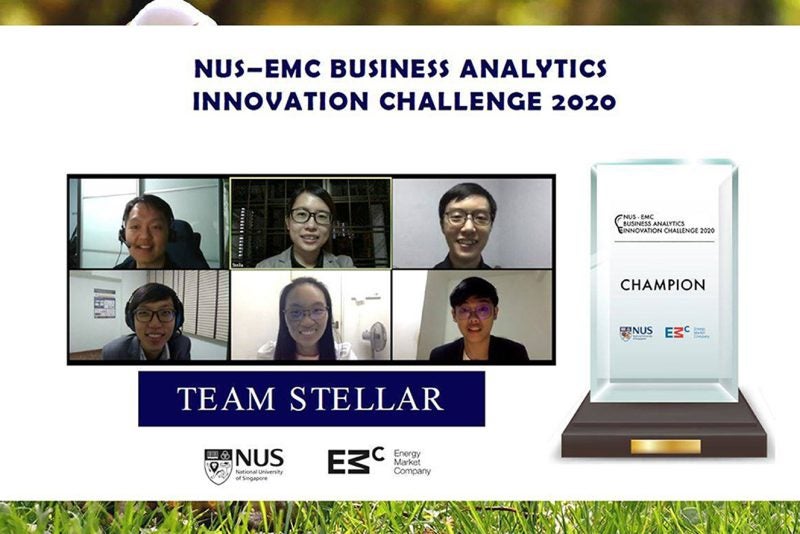From its humble beginning 50 years ago with the creation of the Computer Science department at Nanyang University, NUS Computing is now recognised as a global leader in a field that has transformed our daily lives and the world. In an incredibly competitive landscape, NUS Computing was ranked 6th best in Computer Science and Information Systems in the world, outpacing many programmes globally.
In the third instalment of the Conversation With series, we interview Professor Tan Kian Lee, Dean of NUS Computing. A graduate of the school’s first group of Computer Science PhD students in 1994, he was the recipient of the 1998 NUS Outstanding University Researchers Award and a co-recipient of Singapore’s President Science Award in 2011. He was named Dean of NUS Computing in 2023.
He has been at NUS for the bulk of his life – beginning as an undergraduate student, continuing through postgraduate studies and into his current role as Dean. We speak to him to gain insights into his background, his vision for the long-term trajectory of the school, and how NUS Computing is navigating the ever-evolving technological landscape.
❈❈❈
Past, Present and Future
Can you please introduce yourself, and tell us what led you to your current role at NUS?
I am Tan Kian Lee, the Tan Sri Runme Shaw Senior Professor and Dean of NUS Computing. I have spent my entire life at NUS, since my undergraduate days some 37 years ago. I have done all my degrees at NUS: undergrad and postgrad.
What led me to my current role as Dean of NUS Computing? I think it was a “Call of Duty”. Having spent 37 years of my life here, I naturally have a deep sense of connection and responsibility to the school. It has accompanied me through many significant milestones and shaped me into the person I am today. I want to give back by serving as the Dean and ensure that everyone – the faculty, staff and students – continues to thrive and grow as I did. I also thought that it would be a great new learning experience and I should put myself forward.
What are your day-to-day responsibilities as the Dean of NUS Computing?
Largely, there are a lot of decisions to be made, looking at challenges and thinking of solutions. We have a large cohort of students, so we have to make sure we are hiring the kinds of people we need to hire and working very closely with the departments on their resource requirements. Many students write to me directly too!
Amidst these day-to-day concerns, I spend much of my time thinking and strategizing about the long-term trajectory of the school. This includes envisioning how we want our students to contribute back to society and where we should focus our research efforts.
All in all, I want to create an environment that nurtures both faculty and students to develop technologies guided by ethical and sustainable principles and addresses critical challenges. By empowering the community of NUS Computing, we can create a brighter future through the power of technology.
How would you describe the vision and mission of NUS Computing going forward?
Our Vision
Pioneering excellence in technology education, NUS Computing aspires to be a continuous, transformative force, leaving an indelible mark on society and shaping countless generations.
We envision a world where our diverse graduates lead with innovation, ethical responsibility, and a commitment to positive societal impact, forging a legacy that transcends time and empowers humanity to thrive in the ever-evolving landscape of technology.
We aim to be outstanding, in all measures: as a world-class institute of scientific research and discovery, and as an equitable and inclusive employer and educator. We are proud to be a Singapore information technology institution dedicated to promoting innovation and entrepreneurship globally.
Like every academic institute, our key mission is to educate the next generation of students well. We must ensure that students have access to a rigorous programme and that we equip them well. We must provide them not only with the knowledge and the skills to help them in their careers but also with the tools to become responsible and ethical citizens. In terms of research, our mission is to create advanced knowledge and disseminate it in impactful, useful ways.
What was instrumental in building up NUS Computing, to become one of the most respected brands in the world?
I would say our commitment to excellence was one of the factors that propelled us to become one of the most respected brands in the world. We were willing to commit resources to maintaining a strong school. When we first started, we were primarily a teaching university and then later transitioned to a research university, and with that move came a great emphasis on high-quality research. For example, we started our research strategy in 1996, listing high-quality journals and conferences that we should publish at. We were able to build a reputation within academia and we were also committed to recruiting world-class researchers. Everyone here now – from me and my cohort to my younger colleagues – has set a very high bar for themselves and the school.
Another point is perseverance. There was a low point for us during the dot-com crisis. There were major layoffs in the technology sector and many prospective students were not applying to computing. Most recently, we had to grapple with the COVID-19 crisis which caused widespread disruption to many sectors. Nonetheless, we persevered as a school through these tough times and will continue to do so.
Of course, none of this can be done alone. We are very fortunate that we have a dedicated team who always put their best foot forward. Everybody is putting in effort and, I believe we have very good senior management at the university level, which has always been supportive of building our school. This goes to our admin staff as well who have always been quietly supporting us behind the scenes.
What are the most important attributes in creating a world-class educational experience for NUS students?
There are a few key things. Firstly, we have very good exchange programmes which allow students to be exposed to other cultures. Secondly, internships are compulsory, so they give students real-world experience before they graduate. Thirdly, we have a flexible curriculum that guarantees every student can do two majors if they choose. This is good because it allows students to explore beyond their first major and try another discipline.
In research, we have a strong undergraduate research programme, which allows undergraduate students to experience what a research career is like. For example, the Turing Programme is an elite programme for students to explore theoretical and practical research work.
Lastly, we have introduced several extra-curricular activities over the years, to give students opportunities to do and learn from more than classroom activities. For example, the Centre for Computing for Social Good & Philanthropy (CCSGP) creates opportunities for our students to develop systems for non-profit charity organisations and teach fundamental computer skills to underserved communities, and the Centre for Nurturing Computing Excellence (CENCE) trains students for competitions. Our undergraduate programmes and activities like these are meant to equip our students with a sense of social responsibility, and resilience, and to learn from their failures. These kinds of educational learning experiences are served by my colleagues, who are passionate and dedicated educators.
What are some of the key milestones that have helped the school to go from strength to strength?
I think the first one is when we introduced our PhD programme in the 1990s – I was part of that first cohort that graduated in 1994. This is the real start of our emphasis on research. This, along with implementing a four-year direct honours bachelor’s degree programme, allowed us to train our students more rigorously and gave us a more holistic programme. The next major milestone was the formation of the Computing school in 1998. Before that, we were a department within the Faculty of Science with limited resources. Once we became our own school and elevated to faculty status, we had our own resources, and we could make independent decisions on how we wanted to drive our research directions and other programmes.
A third milestone was when we developed the Furnace, our in-house incubator programme for tech startups, which helped drive our education toward entrepreneurship activities within the school. We gave students and faculty members resources such as a room with some equipment, and industry mentorship so that they could transition from concept to execution. We also connect students with industry leaders, potential investors, and alumni networks; this sets the tone for a thriving entrepreneurship culture within the school.
Another important milestone that is important was our journal/conference ranking exercise. I believe we are the first Singapore school to come up with a journal and conference ranking system, and many other universities adopted and adapted our version. This has set us on the right path to increase our ability to publish in high-quality outlets. These contributions also allow us to have additional resources to expand in terms of the kinds of research we want to do, particularly our recent focus on research in artificial intelligence (AI).
What are the ways that NUS Computing will be expanding and evolving in the coming years? What does our roadmap look like?
With the fast-paced nature of technology, we are implementing several strategies to grow our school. This includes extending Continuing Education Training (CET) opportunities for students and alumni to prepare for an ever-changing tech landscape.
We will also be placing more emphasis on AI as a foundational skill and exploring growth areas such as Deep/Machine Learning and Large Language Models (LLM). In fact, we have already been offering AI focus areas for many years. We will put in more resources to ensure that any student whose interest is in AI will not be denied that opportunity. Our curriculum equips students with the ability to understand and utilise AI tools, critically evaluate their impact, and use these systems responsibly. This will also contribute to Singapore’s aspirations to become an AI hub by producing a steady AI-ready workforce.
In addition, given the global emphasis on sustainability, we may expand to include programmes related to renewable energy, environmental science and sustainable technologies in our growth strategy. Sectors such as biotechnology, medical technology, blockchain and cryptocurrency are likely growth areas for us to include in our research and education programmes too.
Lastly, the school will prioritise interdisciplinary studies and industry partnerships to ensure it addresses complex social challenges.
You have noted that the computing world is changing fast. What do you see as the greatest force for change? How do you think NUS Computing will meet the challenges that change creates?
In today’s context, I think AI in Computing is the most formidable force. So, I think it’s important for us to educate our students beyond technology - in terms of ethics and governance. There are also a few areas besides AI, such as the Internet of Things (IoT), and Robotics, that are also going to become increasingly important. I also think Green Computing and Sustainability are going to be a very important area for the future. Such concepts like Sustainable Software Engineering – basically writing energy-efficient code – are going to be important skills in the future. We are training our students to be different with critical thinking and logic to adapt to the computing modes of the future.
Attracting World-Class Faculty
What are ways in which the university hopes to build on that strength to become a top school of choice for local and international faculty?
I think it’s the people who make the difference. I always feel that if we had the same level of resources as top universities in the US, such as MIT or Stanford, but still had our same talented staff and faculty, we would be able to do just as good or perhaps even better work. I think we are doing very well already with the resources we have available. That’s because we have very dedicated colleagues who are genuinely interested in research and work extremely hard. I am glad they are all doing very well.
On the student level, we attract many talented postgraduate students as well. Many of them go on to become Lecturers and Assistant Professors in various universities around the world in their first job placement.
Another way the school can leverage on is our highly collaborative culture. Many interesting things can be birthed if we work together in close partnership. Stakeholders that we collaborate with include the government, other universities and industry partners. Research centres that have benefitted from strategic alliances with stakeholders (the government, universities and industry partners) include the NUS-NCS Joint Laboratory for Cyber Security, SIA-NUS Digital Aviation Corporate Laboratory and NUS-Tsinghua-Southampton Centre for Extreme Search.
Singapore’s AI Agenda and Its Impact
How do you envision the role of technology in shaping the future of education within our university?
One way is through AI assistants that can help people learn better. Many of my colleagues are conducting research to develop systems that can provide better feedback to students. For example, if a student answers a question incorrectly, the system won’t only tell them that it’s wrong but also provide appropriate feedback to help them learn. This acts like an intelligent tutor.
Another approach some of my colleagues are taking is to design educational technologies using gamification principles. Students enjoy games and rising on a leaderboard. Coursemology, a system that one of our faculty members developed is a good example. When we introduced Coursemology into our classes, even though students were given more assignments, despite the additional workload they still found the course valuable because they found them engaging. The gamification aspect seemed to motivate students to complete exercises earlier than they otherwise would because they wanted to finish to unlock the next level. Somehow, it motivated students to study and do their assignments. I think technology can enable students to learn in many different ways.
The fast developments in AI are among the most thrilling – as well as most controversial – in the computing world. What impact will the Singapore government’s AI announcement last December mean for the school?
We are already doing a lot in terms of supporting AI in education and research. To some extent, I think this is a pat on our shoulder. And the government is putting in more resources to support AI research. From an educational point of view, we are already doing the right thing. The government’s announcement simply confirms that we are heading in the right direction. We certainly need to put a lot more emphasis because the government wants to train many more people in AI. It’s a good thing for us.
In terms of research, we already have an AI Lab, the NUS AI Lab (NUSAiL), within the school. We are in the kind of research area that is mentioned by our Deputy Prime Minister, Lawrence Wong at the Singapore Conference on AI for the Global Good – Reasoning AI, Resource-Efficient AI and Responsible AI. That is a strong endorsement, and our colleagues are already working in these areas.
What are the challenges and opportunities that AI will bring to NUS Computing in the next year and the near future?
I think hiring will be a challenge everywhere because the number of good AI people is limited. Yes, industry and universities everywhere are putting resources into AI. In terms of that limited talent pool, everybody is grabbing them. I hope the programmes that we have in research and education will be able to attract more talent. So that, I think, will be the biggest challenge. But given the resources that the government is putting in, it’s also an opportunity for us to think about what we can do to help Singapore advance in this domain. The war for talent is everywhere.
Upcoming Open House
Are there any key things you are proud of in the past year? And are there any exciting developments in the next school year?
Everyone is saying how exciting it is that we are reaching our 50th-anniversary celebration. I am glad that our students are still in demand despite early warnings of possible layoffs in the tech sector. If you look at our most recent Graduate Employment Survey (GES), it shows that our computing students are still in high demand and are commanding high salaries.
We were the first to come up with the concept for our new building, and the new Sea Limited (Sea) building provided us with some additional space to help with our recent growth, though we still need more space. Such contributions also allow us to have additional resources to expand the types of research we want to do, particularly in AI.
What advice would you give to prospective students seeking to excel academically and make the most of their university experience?
Make sure you are truly interested in computing and have a passion for it. Don’t pursue computing just to chase after high salaries in the tech sector. If you’re not passionate about computing, I don’t think you will be able to stay motivated or keep up over time, even if you can get a good job now.
The field changes too fast so if you’re not passionate about it, you will feel overwhelmed as whatever skills you learned initially quickly become obsolete. You are setting yourself up to become miserable in your career. However, if you have a passion for computing, I think you will enjoy constantly learning new skills as needed to keep up with changes, making the growth journey enriching and meaningful.

